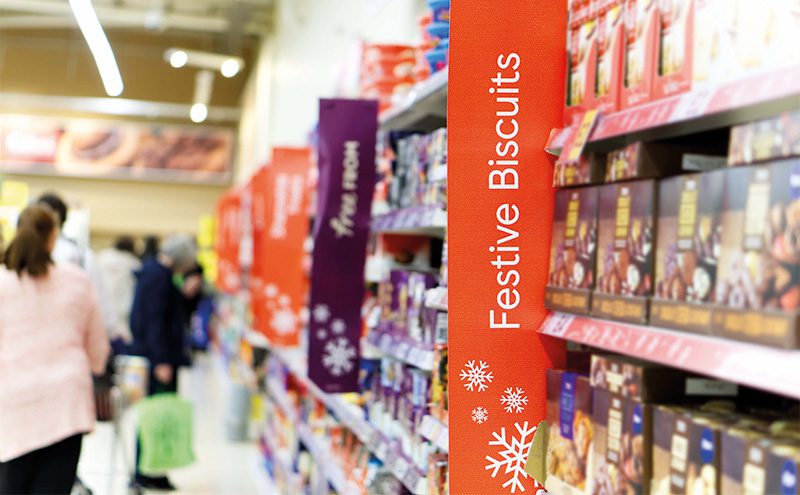
BRITISH grocery sales saw a “reasonable, but not spectacular” final Christmas trading period, according to Mike Watkins, Nielsen’s UK head of retailer insight.
For the four weeks until 29 December — a period that retailers would expect to be one of their best performing — Nielsen found that grocery sales grew by +1.8%, down from the 3.7% growth enjoyed over the same period in 2017.
Nielsen said that while shoppers were visiting supermarkets more frequently, high levels of discounting meant that they were spending less overall.
Among those supermarkets that did perform well, Nielsen recorded predictably strong sales for the discounters, with Aldi increasing sales by 11.7% and Lidl by 13.6%.
Kantar Worldpanel (which records sales via a consumer panel rather than EPOS data) painted a more positive picture of festive grocery sales: finding that supermarkets performed better than their high street counterparts and posted sales of £29.3 billion.
For the 12 weeks ending 30 December, Kantar found that the Co-op was the only retailer to beat its 2017 growth rate, with its market share increasing for the seventh period in a row.
Kantar also recorded strong festive sales for Tesco and Asda, as well as the discounters.
Fraser McKevitt, head of retail and consumer insight for Kantar, said: “The discounters have continued to make their mark over Christmas: two-thirds of all households shopped at either Aldi or Lidl over the 12-week period culminating in a highest-ever combined Christmas market share of 12.8%.”


















